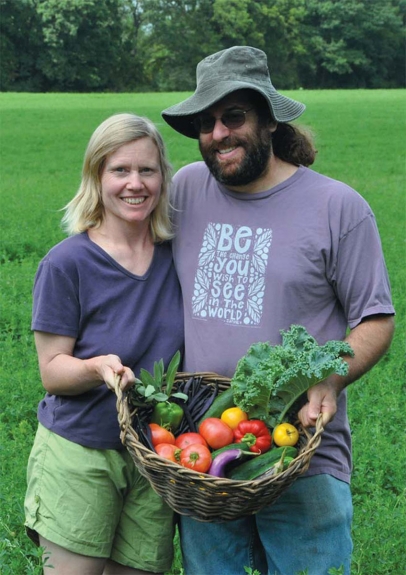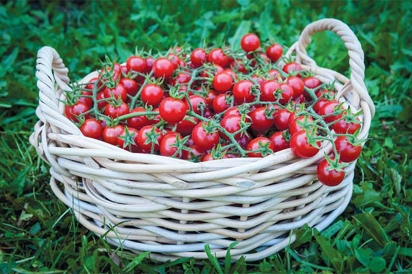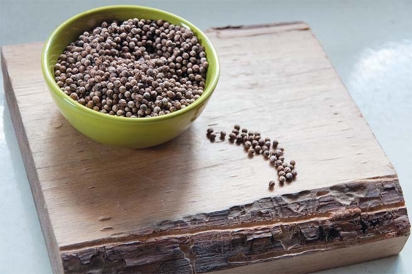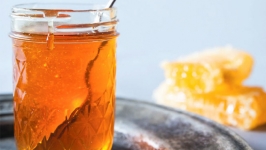Nature and Nurture Saves Heritage Seeds
Preserving the seed heritage of the Great Lakes region is an exciting quest for Erica Kempter of Nature and Nuture Seeds. The longtime local food activist has made it her mission to uncover the stories behind the historical foods grown in the Midwest and to bring back varieties that have been lost.
Kempter got her start at the University of California, Santa Cruz, earning a degree in environmental studies and sustainable agriculture and participating in their renowned apprenticeship program in organic horticulture. She worked on many urban gardening projects before returning to her home state of Michigan to work at the Detroit Agriculture Network and to start an organic residential gardening, landscaping and consulting business with her partner, Mike Levine.
A member of Slow Food Huron Valley and creator of the HomeGrown Festival in Ann Arbor, Kempter was especially stirred by the Slow Food publication Place-Based Foods at Risk in the Great Lakes by Gary Nabhan. “I realized that we have lost over 90% of vegetable and livestock varieties over the last 100 years,” she says.
On a serendipitous flight to an eco-farm conference, she met veteran plant breeder John Navazio, who encouraged her to start breeding plants.
Ever since, Kempter has been researching the history of Midwest plant varieties and growing seeds. In 2013, she and Levine—who has an ecosystems management background—launched Nature and Nurture Seeds, and in 2014 purchased an 80-acre farm to grow more seeds.
“It’s all about re-regionalizing and bringing back varieties to the region by growing them locally,” says Kempter. “Seed companies used to focus on seeds that grew well in their particular region, but today, they don’t do that anymore. Smaller, farm-based companies are doing that because they believe it’s important to grow and create new, regionally adapted seeds and varieties that will feed us into the future, despite new diseases, new pests and climate change.”
Presently, Nature and Nurture Seeds grows 50% of offered varieties on their farm. The rest are purchased from other farmers that they know and trust and from organic seed companies. Over time, they plan to grow 100% of the seeds they sell.
"All of our seeds are open-pollinated varieties, not hybrid, so they are always evolving,” says Kempter. “By growing them here, we are making them more and more regionally adapted, plus we’re breeding for vigor, cold hardiness and disease resistance.”
“On our farm, we’re doing restoration agriculture; perennial planting of nut trees, vines and berry bushes; and biointensive farming, which uses the land efficiently. We’re always thinking about our whole farm and ecosystem and the interactions between everything. We plant native plants to increase the pollinators on the farm and to increase the beneficial insects for pest control.”
“We’re constantly getting feedback from the community telling us that what we are doing is so awesome and to keep up the good work,” says Kempter. “This helps energize me and reminds me that what I’m doing is right and to keep my eyes on my vision and keep going in that direction.”
Find out more at Nature and Nurture Seeds







